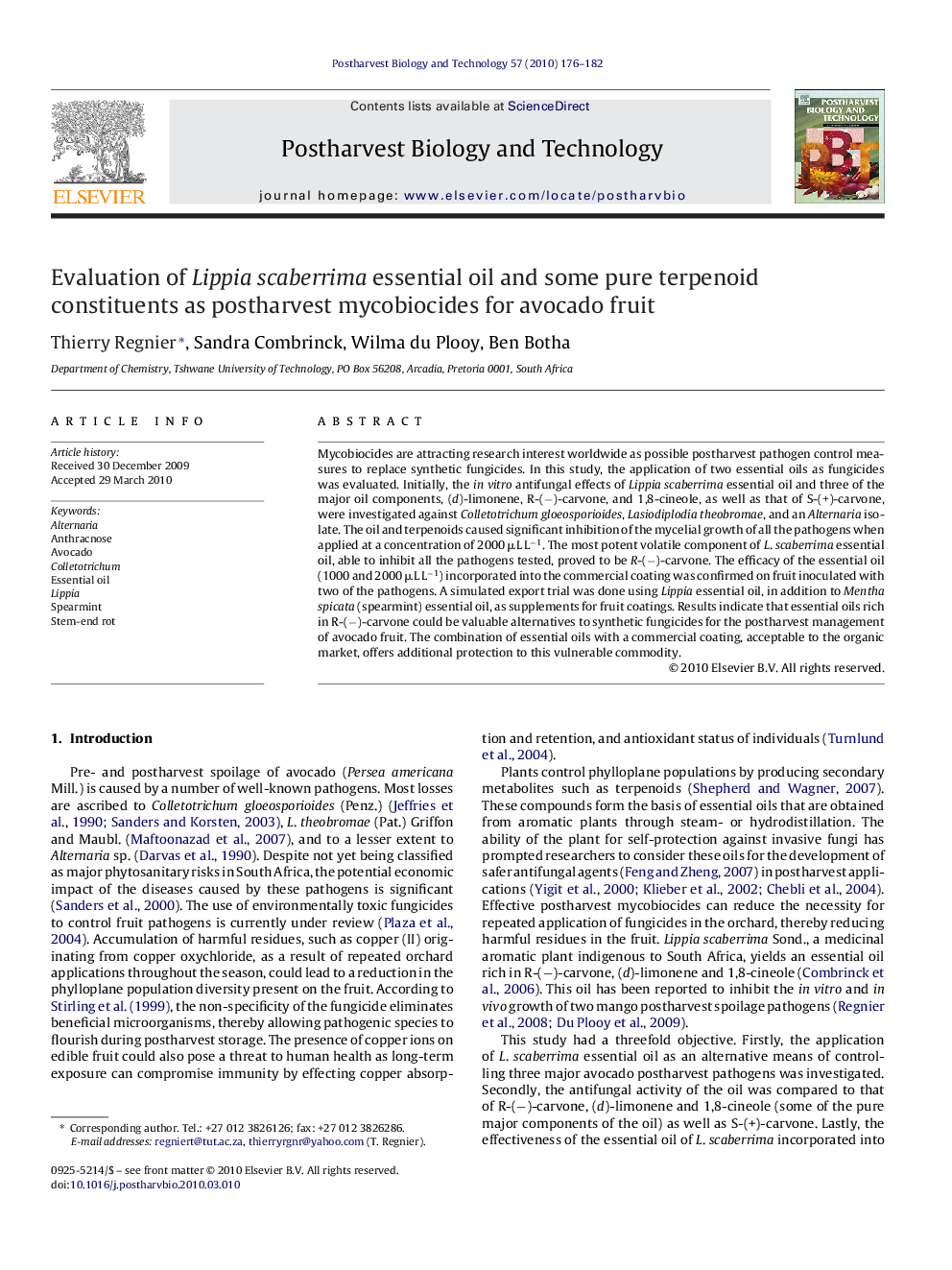| Article ID | Journal | Published Year | Pages | File Type |
|---|---|---|---|---|
| 4519078 | Postharvest Biology and Technology | 2010 | 7 Pages |
Mycobiocides are attracting research interest worldwide as possible postharvest pathogen control measures to replace synthetic fungicides. In this study, the application of two essential oils as fungicides was evaluated. Initially, the in vitro antifungal effects of Lippia scaberrima essential oil and three of the major oil components, (d)-limonene, R-(−)-carvone, and 1,8-cineole, as well as that of S-(+)-carvone, were investigated against Colletotrichum gloeosporioides, Lasiodiplodia theobromae, and an Alternaria isolate. The oil and terpenoids caused significant inhibition of the mycelial growth of all the pathogens when applied at a concentration of 2000 μL L−1. The most potent volatile component of L. scaberrima essential oil, able to inhibit all the pathogens tested, proved to be R-(−)-carvone. The efficacy of the essential oil (1000 and 2000 μL L−1) incorporated into the commercial coating was confirmed on fruit inoculated with two of the pathogens. A simulated export trial was done using Lippia essential oil, in addition to Mentha spicata (spearmint) essential oil, as supplements for fruit coatings. Results indicate that essential oils rich in R-(−)-carvone could be valuable alternatives to synthetic fungicides for the postharvest management of avocado fruit. The combination of essential oils with a commercial coating, acceptable to the organic market, offers additional protection to this vulnerable commodity.
